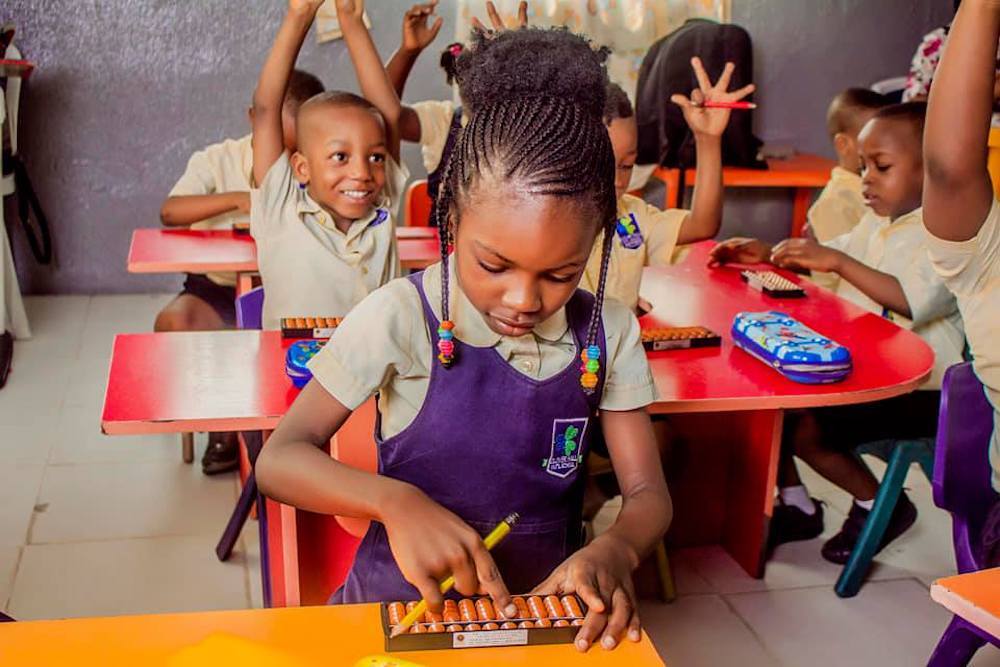
Chibok girls search and Nigerian safe schools discussed by UK politicians
Safe schools
Politicians from all sides of the United Kingdom Parliament met yesterday to discuss the kidnapped girls of Chibok.
Nigerian Finance Minister Ngozi Okonjo Iweala was invited to address members of the House of Commons by Gordon Brown, former British prime minister and United Nations Special Envoy for Global Education.
The event was chaired by the Speaker of the House John Bercow. The audience heard details about the Safe Schools Initiative, which has been established to prevent such attacks happening again, and were given an update on efforts to rescue the girls.
International Development Secretary Justine Greening, Labour party deputy leader Harriet Harman, Liberal Democrats deputy leader Sir Malcom Bruce and Nduka Obaigbena – publisher of Nigerian newspaper THISDAY – also spoke to a packed committee room of more than 80 parliamentarians and guests.
Hailed as one of Africa’s most prominent female leaders, Minister Ngozi called for worldwide support for the Safe Schools Initiative. She won promises of help from charities, business leaders and all UK political parties as she sought to raise $100millio to finance the fortification and guarding of schools in northern Nigeria.
She said: “No girl should be punished for wanting to go to school. This is why we are doing all we can to make sure places of learning are safe – we do not want to turn them into fortresses but we are looking at better communications and community policing as well as physical measures.
“We are hoping that the Safe Schools Initiative will dovetail into a longer-term plan for the north-east area, it is part of a strategic education plan.”
In what is being called a “second emergency” by Mr Brown, all schools in Borno state are now closed. MPs were told that girls are afraid to travel to school for fear of terrorist reprisals.
Minister Ngozi thanked the international community for their help. She said: “We created the Safe Schools Fund as a window because so many people just asked us what they could do to help. What they could do to make sure this does not happen to any other girls.”
She also updated the group on efforts to rescue the Chibok girls. She had spoken to President Goodluck Jonathan earlier in the day and he informed her that “all platforms are being explored in order to get the girls back”.
Mr Obaigbena, who has supported the Safe Schools Initiative since its inception in May, spoke on behalf of the Nigerian business community, which pledged the initial $10million for the fund.
He said: “At my newspaper THISDAY we were also the target of Boko Haram. Our offices were bombed and two staff were killed. But the next day we published a paper telling the story on the front page. But these girls have no voice – we must speak for them.”
The UK Government pledged extra support for the Nigerian Safe Schools Initiative, on top of their $1million committed contribution. Justine Greening said: “There are forces across the world who want to deny girls an education, girls having a choice is at the heart of the work we do at DFID (Department for International Development). Boko Haram are starting these battles because they know they are losing the war.”
MP Harriet Harman spoke of how the Nigerian community in her London constituency had been moved by the plight of the girls. She said: “Minister Ngozi, you are not alone in your efforts – the kidnap of over 200 girls cannot be allowed to stand in this day and age.”
Following the event, Gordon Brown held a debate in House of Commons in which he asked for increased support from governments around the world to find the girls.
Mr Brown said: “While it is right to recognise there has been a great deal of international support, it is also right to acknowledge that in its hour of need Nigeria does require more helicopter support, more aircraft cover, more surveillance equipment.
“I believe that we should also support President Jonathan’s call for a better co-ordinated system for sharing intelligence across borders and if necessary the use of special forces and law enforcement agencies to help them confront terrorism.”
More news

